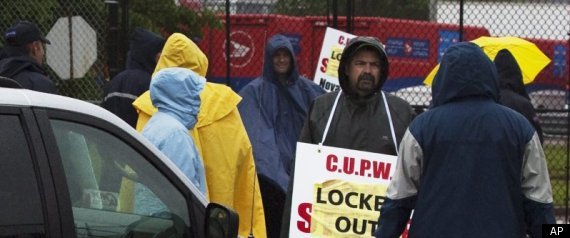Two Toronto immigrant agencies were given passing marks on their grant applications by two out of three assessors, but still lost their federal funding, documents obtained by the
Star show.
The South Asian Women’s Centre, established in 1982, lost its bid for
$693,000 — the majority of its overall funding — from Ottawa on April 1 and has been forced to cut services and close satellite offices. It served 14,000 clients in 2010. The Davenport-Perth Neighbourhood Centre, a multi-service agency in existence since 1985, was denied $426,000 it sought for family settlement services.
The two agencies were among some 34 Ontario organizations — 14 in Toronto — that lost federal funding when Citizenship and Immigration Canada cut $43 million in settlement services in Ontario this year. The groups typically deliver language, employment and integration programs to newcomers.
According to documents obtained under the Access to Information Act, funding proposals submitted by the South Asian Women’s Centre and Davenport-Perth Neighbourhood Centre were each reviewed by three immigration officers.
In both cases, two assessors gave the funding requests a score above the passing mark of 105, while a third evaluator failed them.
“This is absolutely unfair,” said Kripa Sekhar, executive director of the women’s centre. She said the agency, which was forced to lay off seven workers, repeatedly requested information, without success, on how the funding decision was reached.
“We had no idea how these proposals were assessed,” she said, adding “we were not offered any opportunity to respond to the questions immigration raised” on the score sheets.
Immigration spokesperson Tracie LeBlanc said both agencies needed a third assessment by managers because staff was split in their decision.
“While an organization may have received a ‘pass,’ this does not imply CIC made the final decision to provide funding,” she told the
Star in an email.
Funding was rejected “based on a number of factors, including their overall assessment scores and feasibility rankings. Both organizations received a ‘D’ feasibility rank,” said LeBlanc, adding the agencies were informed of the decision-making process.
Kim Fraser, Davenport-Perth’s executive director, said the organization feels betrayed by the government, given agencies were told to “think big” during an information session last spring detailing the government’s new “modernized approach” to settlement programming.
“Why encourage people to think big when the intention was to make cuts?”
The Ontario Council for Agencies Serving Immigrants, an umbrella group representing 200 settlement organizations, asked Ottawa to implement a mechanism for reviewing funding decisions to improve transparency, but the request was denied.
Full Article
Source: Toronto Star 



